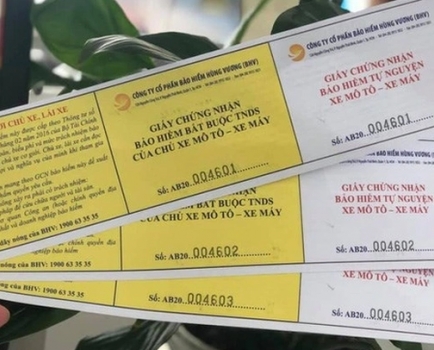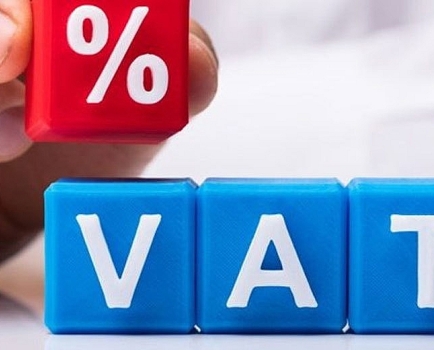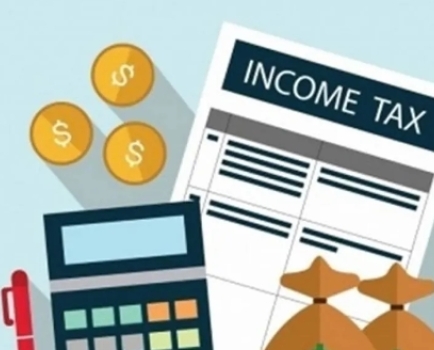Can replacement invoices issued in 2023 be taxed at 8%?
Tue, 28 Mar 2023 13:55:00 | Print | Email Share:
Ms. Pham Thi Hien (Thai Binh) has issued a sales invoice at the tax rate of 8% in December 2022 and that invoice is a replacement invoice. By 2023, customers report that they need to issue invoices again because of a change in the quantity of goods allocated to member companies.
Because the original invoice was already a replacement invoice, Ms. Hien's organization must now continue to issue a replacement invoice. In this case, can her organization write a replacement invoice with the tax rate of 8% or not (the new invoice with the same name of the purchasing unit only reduces the quantity of goods?
The Tax Department of Thai Binh province responded to this problem as follows:
In Clause 1, Article 8 of Circular No. 219/2013/TT-BTC dated December 31, 2013 of the Ministry of Finance guiding the implementation of the Law on Value-Added Tax (VAT) and Decree No. 209/2013/ND-CP dated December 18, 2013 which detailed regulations and guidelines by the Government on implementing a number of articles of the Law on VAT:
"Article 8. Time of VAT determination
1. For the sale of goods, it is the time when the ownership or the right to use the goods is transferred to the buyer, regardless of whether money has been collected or not...".
In Clause 1, Article 1, and Clause 1, Article 3 of Decree No. 15/2022/ND-CP dated January 28, 2022 of the Government providing for tax exemption and reduction policies according to Resolution No. 43/2022/QH15 of the National Assembly on Fiscal and monetary policies to support the socio-economic recovery and development program:
"Article 1. VAT reduction
1. Reduced VAT for groups of goods and services currently applying the 10% tax rate, except for the following groups of goods and services:
… Article 3. Effect and organization of implementation
1. This Decree takes effect from February 1, 2022.
Article 1 of this Decree applies from February 1, 2022 to the end of December 31, 2022.
In Clause 1, Article 4, Clause 1, Article 9, and Clause 2, Article 19 of the Government's Decree No. 123/2020/ND-CP dated October 19, 2020 on invoices and documents:
"Article 4. Principles of making, managing and using invoices and vouchers
1. When selling goods or providing services, the seller must issue an invoice to deliver to the buyer (including cases where goods and services are used for promotion, advertising, or samples; goods and services used for giving, exchanging, paying wages for employees and for internal consumption (except for goods circulating internally to continue the production process); export goods in the form of loans, or return of goods) and must fully record the contents as prescribed in Article 10 of this Decree. In case of using e-invoices, it must follow the standard data format of the tax authorities as prescribed in Article 12 of this Decree.
… Article 9. Time of issuing invoices
1. The time of making invoices for the sale of goods (including the sale of state assets, confiscated properties, replenishment of state funds and sale of national reserve goods) is the time when the ownership or right to use the goods is transferred to the buyer, regardless of whether the money has been collected or not.
… Article 19. Handling of invoices with errors
… 2. In case an e-invoice with a tax authority's code or an e-invoice without a tax authority's code has been sent to the buyer, but the buyer or the seller detects errors, the following shall be handled:
… b) In wrong cases: Tax code; the invoice amount is incorrect, the tax rate or tax is incorrect, or the goods listed on the invoice are not in accordance with the specifications and quality, there are two ways to use the e-invoice as follows:
… b2) The seller shall issue a new e-invoice to replace the error e-invoice, unless the seller and the buyer have agreed to make a written agreement before issuing a replacement invoice for the invoice that has already been issued. If there is an error, the seller and the buyer make a written agreement specifying the error, and then the seller issues an electronic invoice to replace the incorrect invoice.
A new e-invoice that replaces an e-invoice that has been made with errors must have the words "Replace the invoice Model No... flag... number... date... month...".
The seller digitally signs the new e-invoice that corrects or replaces the erroneous e-invoice and then sends it to the buyer (for the case of using an e-invoice without the agency's code tax) or send it to the tax authority to issue a code for a new e-invoice to send to the buyer (for the case of using an e-invoice with a tax authority's code)".
In Clause 1, Article 7 of Circular No. 78/2021/TT-BTC dated September 17, 2021 of the Ministry of Finance guiding the implementation of a number of articles of the Law on Tax Administration dated June 13, 2019, Decree No. 123/2020 /ND-CP dated October 19, 2020 of the Government providing for invoices and documents:
"Article 7. Processing of e-invoices, the e-invoice data summary table sent to the tax authority contains errors in some cases
1. For electronic invoices:
… c) In case the e-invoice has been made with errors and the seller has handled it in the form of adjustment or replacement according to the provisions of Point b, Clause 2, Article 19 of Decree No. 123/2020/ND-CP, then again detecting that the invoice continues to have errors, the next processing times the seller will follow the form applied when handling errors for the first time;…”.
Based on the above provisions and Ms. Hien’s question, in case her company selling goods has issued an e-invoice, if detecting errors in the issued invoices and choosing a new e-invoice method instead, based on the actual arising situation to issue a replacement invoice in accordance with the provisions of Article 9, Article 19 of Decree No. 123/2020/ND-CP, Article 7 of Circular No. 78/2021/TT-BTC.
If the buyer has received the goods, but needs to reduce the quantity of the goods, the buyer will issue an invoice to return the goods to the seller.
The time of determination of VAT shall comply with the provisions of Article 8 of Circular No. 219/2013/TT-BTC.
The Tax Department of Thai Binh province replied to Ms. Pham Thi Hien to know and comply with the provisions of the legal documents cited in this dispatch.
By: Government newspaper/Translator: LeAnh-Bizic
---------------------------------------------
Same category News :
Other news :



















